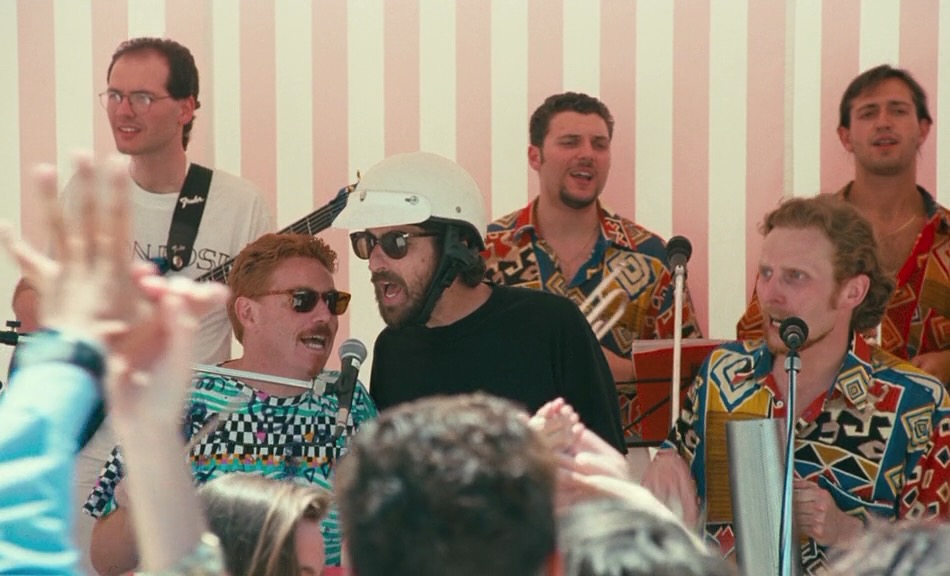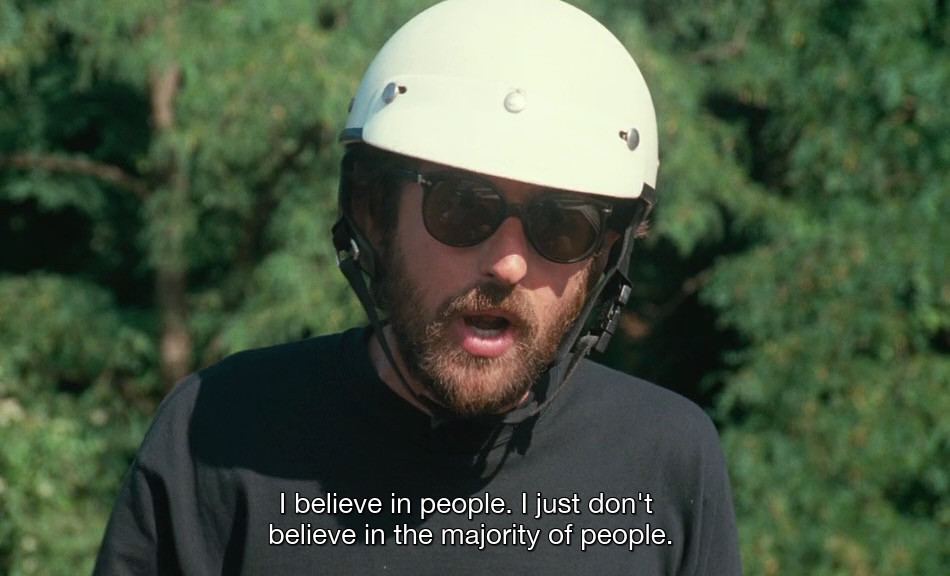Opens with a threesome sex scene over the credits, nice. “Torso” turns out to be code for “boobs.” This was technically pre-shocktober, part of Criterion’s giallo series from which I also watched Who Saw Her Die? and The Girl Who Knew Too Much.
Someone is strangling hot young people with scarves. Flo goes out to a sex commune and gets drowned and mutilated in the swamp on the way home. The local scarf vendor (of Toby Dammit, also a good scarf movie) knows who bought the murderscarves but instead of telling the cops he calls the killer to blackmail him, then is immediately smooshed by a car. Mostly this raises the question of why a weirdo running a scarf kiosk keeps his customers’ phone numbers.
Suzy Kendall (kidnapped girlfriend of The Bird with the Crystal Plumage) and macaw:

A group of hot girls decide to take a trip to the country after failing to locate their friend Stefano (Roberto Bisacco of Stavisky), presumed scarf murderer – though after watching more than one giallo, we know the most suspicious guy is least likely to be the killer, and sure enough when Stefano finally shows up he’s been scarf-strangled.
Jane’s car has Chicago (not Illinois) plates:

Jane wakes up and the others are dead, then hides while the killer hacksaws them. Their professor John Richardson (victorious hero of Black Sunday) is the baddie, and the moment he’s discovered he narrates his entire traumatic triggering backstory which involves a Mac & Me-esque cliff fall. Some guy fights him and saves her, I’m not sure who. Have I mentioned that all the dialogue is super ridiculous?
Girls who need a vacation:

What girls do on vacation:




























